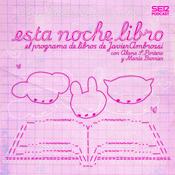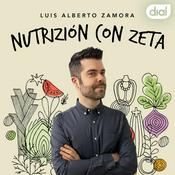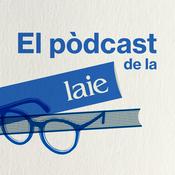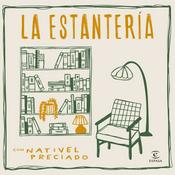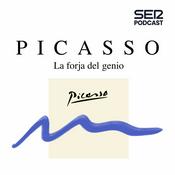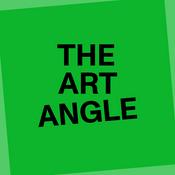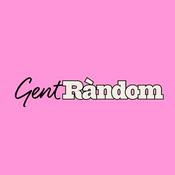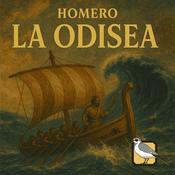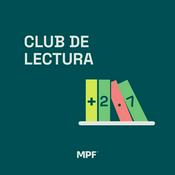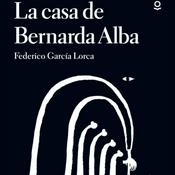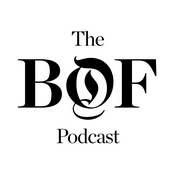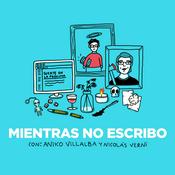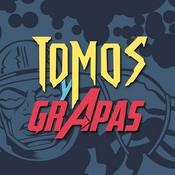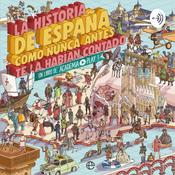694 episodios
694. Entre el diseño participativo y las ciencias del comportamiento (Colombia/Suecia). Una charla con Juan Pablo Velásquez
18/2/2026 | 46 minJuan Pablo Velásquez es es un diseñador e investigador colombiano viviendo en Suecia. Juan nos cuenta sobre su investigación de doctorado en temas de transporte usando patrones de diseño y un pensamiento sistémico.. Juan nos explica el porque de su interés en las ciencias del comportamiento y como exploró haciendo prototipos para bajar el consumo de agua en los hogares. Hacia el final de la entrevista hablamos de un nuevo programa en Diseño de interacción que pronto empieza en su Universidad. Como es parte del comité editorial de Co-design, codiseño, una de las revistas indexadas de diseño, le pregunté sobre este trabajo.
Algunos de sus artículos:
Mapeo a través del diseño de las prácticas restaurativas para adolescentes vinculados al sistema de responsabilidad penal en Colombia.
Promoting Sustainable Water Behaviours Through Exploration with IoT Prototypes
Active and Passive Participation in Participatory Design and User-Centered Design
The Systemic Value of Water at Home: Social Norms, Behaviours, and Design
Esta entrevista es parte de las listas: Colombia y diseño, Suecia y diseño, Diseño sostenible, Investigación en diseño, Educación en diseño, Transporte, Agua y Comunicar diseño.
Nos recomienda leer a:
Arturo Escobar.
The Guardian693. Re-inventing the public library through codesign (Finland). A talk with Virve Hyysalo
15/2/2026 | 43 minVirve Hyysalo is a Senior Service Designer who works at Pentagon Design. In this interview, we talk about all the co‑design work that went into creating the Oodi Library in Helsinki. She walks us through the methods they used, and how these approaches made it possible to include different user groups and citizen groups in the design process.
We move from the big picture to the tiny details—really diving into how this project was shaped with care, attention, and love.
This interview is part of the lists: Diseño de servicios, Finnish design in public sector, D&D in English, Educación y diseño, Diseño y niñez, Finlandia y diseño, Bibliotecas y diseño. Even though some of the lists titles are in Spanish, content can be found also in English. All the list of episodes in English, which has now more than 40 episodes can be found in the D&D in English.
She recommends us to read:
Design Participation by Sampsa Hyysalo
Life, a user’s manual by Georges Perec692. Capoeira y diseño (Brasil/Suecia). Una charla con Nicholas Baroncelli Torretta
11/2/2026 | 38 minNicholas Baroncelli Torretta es un diseñador e investigador brasilero que vive en Malmö, en Suecia. El se dedica al diseño pluriversal y sostenible con un enfoque decolonial e investiga a través de la capoeira. Nos cuenta en esta entrevista sobre su investigación de doctorado donde investigó teniendo en cuenta el poder, la posición, el privilegio y el acceso de los que participan en un proceso de diseño. Hablamos de la empatía desde una posición decolonial, alianzas afectivas y futuros ancestrales.
Esta entrevista es parte de las listas: Brasil y diseño, Suecia y diseño, Investigación y diseño, Danza y diseño, Diseño decolonial, Diseño sostenible, Arte y diseño social, Niñez y diseño, Juegos y diseño.
En la entrevista Nicholas menciona su proyecto de postdoc: The Forbidden Music
Recomienda:
Pluriversal design SIG- Grupo de la Sociedad de investigación en diseño.
Futuro Ancestral
Ideas para postergar el fin del mundo
Música: Bossa Negra691. El conocimiento de las manos (Chile/ Reino Unido). Una charla con Magdalena Cattan Lavin
08/2/2026 | 41 minMagdalena Cattan Lavin es una diseñadora e investigadora chilena. Trabaja en la Universidad de Chile. Nos cuenta sobre su investigación de doctorado. Hizo una investigación crítica y situada en colaboraciones con comunidades artesanas. Y puso el foco en las tensiones entre diseñadores y artesanos. A ella le interesa cómo podemos reconocer y poner en valor el conocimiento de las manos.
Esta entrevista es parte de las listas: Territorio y diseño, Investigación y diseño, Diseño texti, Educación en diseñol y Chile y diseño.
Ella nos recomienda:
Sentipensante podcast
Orlando Fals Borda
The Little Book of Designer’s Existential Crises in 2022 de Lesley Ann Noel et al.
Ronroco de Gustavo Santaolalla- Gabriel Córdova es un diseñador peruano que nos va a contar sobre su proyecto de expediciones urbanas en Lima visitando huacas y otro proyecto en un museo. También nos habló de otra experiencia inmersiva, que es organizar un evento TED, y sobre la comunidad alrededor del evento. El es el lider de experiencia del equipo de TED Tukuy. Y hablamos del podcast, de este podcast, porque Gabriel hace mucho nos escucha.
Esta entrevista es parte de las listas: Ciudad y diseño, Diseño UX, Arquitectura para el cambio, Perú y diseño, Diseño de servicios, Espacios habitables, Educación en diseño, Comunicar diseño y Diseño gráfico.
Gabriel nos recomienda:
Farenheit 451 de Ray Bradbury
Más podcasts de Arte
Podcasts a la moda de Arte
Acerca de Diseño y Diáspora
Diseño y diáspora es un podcast sobre diseño social en castellano, portugués e inglés. La mayoría de los episodios son en castellano. El podcast ahonda, a través de las voces de diseñadores contemporáneos, temas emergentes como: participación ciudadana, inmigración, políticas públicas, salud, comunidades vulnerables, nuevas ruralidades, sostenibilidad, género y varios otros temas. Muchos de los entrevistados son trabajadores en diseño activos, investigadores o educadores en diseño que provienen de diferentes disciplinas como la biología o la antropología.
Sitio web del podcastEscucha Diseño y Diáspora, Audiolibro En Español y muchos más podcasts de todo el mundo con la aplicación de radio.es

Descarga la app gratuita: radio.es
- Añadir radios y podcasts a favoritos
- Transmisión por Wi-Fi y Bluetooth
- Carplay & Android Auto compatible
- Muchas otras funciones de la app
Descarga la app gratuita: radio.es
- Añadir radios y podcasts a favoritos
- Transmisión por Wi-Fi y Bluetooth
- Carplay & Android Auto compatible
- Muchas otras funciones de la app


Diseño y Diáspora
Escanea el código,
Descarga la app,
Escucha.
Descarga la app,
Escucha.





